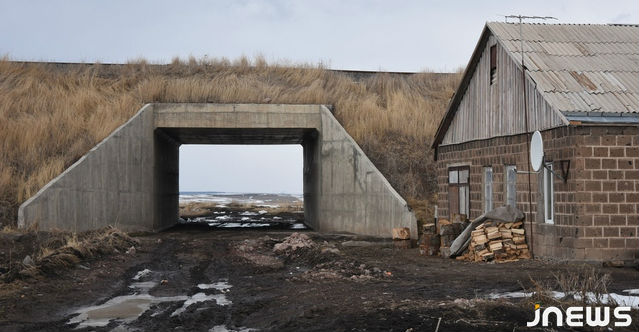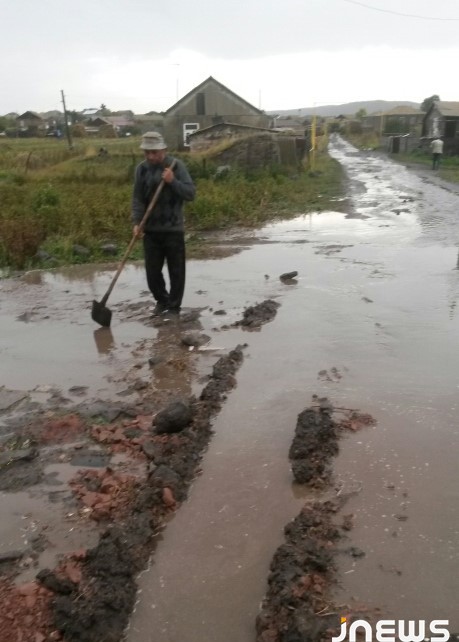
The Baku-Tbilisi-Kars Railway is being built 32 metres away from Harutyun Kazaryan’s house. It causes a lot of inconvenience to the residents of the house, which is now in danger of collapsing.
Kazaryan’s house lies on the edge of in the village of Kulalis, in Southern Georgia’s Samtskhe-Javakheti Region. Since the railway embankment was constructed alongside the house, it now stands below the railway. Water from the village collects in the yard of the house.
‘In summer, when the heavy machinery works, it is impossible to stay at home. Because of the construction works the house has developed cracks, and if this continues, the house might collapse’, Kazaryan told Jnews.
The house was damp and mold appeared on the walls.
‘When they were just starting the construction, our house was in the area of the project, as well as our land. They purchased our land. The house itself suffered from the consequences of the construction. Sometimes people ask us why we sold our land? But we didn’t have any other choice, who would have asked us?’

Susanna Kazaryan, Harutyun’s mother, told JNews that she recently had surgery for a brain tumor.
‘Now I need peace and silence. But what kind of silence can I have if the railway is right in front of our house? It is impossible to sleep at night when they are working or when a freight train passes’, Susanna says.
Harutyun remembers that people came to their family in 2010 to buy their land, which the railway would pass right through. He doesn’t know who these people were, but he remembers that when they came, they took photos of the house and promised that the government would buy it.
‘We want the government to help us to solve our problem. They could buy a house for us somewhere else in the same village, Kulalis. This is our own house. We have lived here since 1994, and it’s not our fault that the government decided to construct a railway right here’, he says.
They have appealed to the central government with a letter, as well as to the National Agency for State Property Management. They received a document from the agency that their letter reached the address, but no steps were taken to solve the problem.




 27 March 2017
27 March 2017



